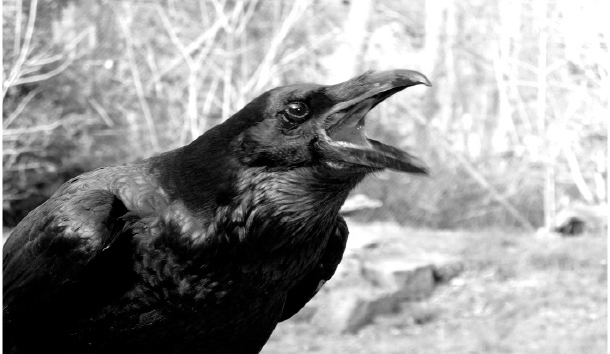While he is to be complimented on an absorbing essay, Egon Richard Tausch (“The Writer and the Lawyers,” Vital Signs, May) goes too far in claiming that Poe “despised” the New England poets and “proved without [sic] a doubt” that Longfellow, in particular, was “a pathological plagiarist, poem by poem.” More than once in his critical writing, Poe says that Longfellow and Lowell are the best poets in America. He scores them—as he scored virtually every poet he reviewed—for metrical imprecision, less-than-true rhymes, and, above all, lack of originality. The immense—81 pages in the Library of America’s Edgar Allan Poe: Essays and Reviews—journalistic campaign against Longfellow that Poe conducted during January through April 1845 does charge the New Englander with plagiarism, but more often with “imitation,” and always from the standpoint that originality is the truest mark of literary distinction. He quotes particular poems and verses of Longfellow’s, setting them cheek-by-jowl with poems and lines by other poets, including himself, that he asserts are so alike in so many points, which he enumerates, that Longfellow’s must be considered plagiarisms. The most lengthy comparisons are those of Longfellow’s “Midnight Mass for the Dying Year” and Tennyson’s “The Death of the Old Year”; William Motherwell’s “folk” poem “The Bonnie George Campbell” and Longfellow’s “The Good George Campbell,” a translation of a German translation of Motherwell’s poem; and a passage from Longfellow’s verse play “The Spanish Student” and one from Poe’s “Scene From Politian, an Unpublished Tragedy.”
I defy anyone to see anything actionable under today’s understanding—or, probably, yesterday’s; but then, nobody seems to have contemplated taking Longfellow to court—of plagiarism in Poe’s quite exhaustive comparisons. We would say that what Poe decries shows “influence” or reflects common cultural knowledge. Longfellow, as a father of comparative literary studies who translated from—hence, read in—languages including German, Anglo-Saxon, French, Italian, Spanish, Swedish, Danish, and, of course, Latin, would have had quite a fund of such knowledge in memory. Is he really plagiarizing when he very closely paraphrases (viz., “Look, then, into thine heart, and write!”) Sir Philip Sidney’s famous “Foole, said my Muse to me, look into thine heart and write!”? Everyone who knew English poetry then recognized, as perhaps everyone who knows English poetry now recognizes, immediately, the source of the paraphrase; appreciated, appreciates, the tribute involved; and weighed, weighs its appropriateness.
In short, Poe hardly proves plagiarism by Longfellow. He certainly, however, sets a reader to pondering originality as a criterion of artistic achievement. I thank you, Mr. Tausch, for prompting me to reacquaint myself with Poe as critic.
For the record, Poe wrote at length about only three canonical New England poets—Bryant, Longfellow, and Lowell. He concluded his review of the last’s Miscellaneous Poems (1843) by remarking that Lowell “has given evidence of at least as high poetical genius as any man in America—if not a loftier genius than any.” He fell out with Lowell later, not least because of Lowell’s abolitionism.
Finally, I would like to know in which of Poe’s essays he “defended John C. Calhoun and states’ rights.” Calhoun doesn’t appear in the Index of the Library of America collection I’ve cited, and that Index is of names and titles only.
—Ray Olson St. Paul, MN
Mr. Tausch Replies:
The line between “imitation” and “plagiarism” is narrow, and Mr. Olson admits that the conclusion of Poe’s line-by-line comparisons of Longfellow’s poems with those of others “must be considered plagiarisms,” at least in Poe’s opinion (and mine). “Without” a doubt. I congratulate Mr. Olson for his reading of some of Poe’s essays, considering how few do. He and I both examined one of the same essays, and I see little difference between our interpretations.
I was not considering whether Longfellow’s plagiarisms were legally “actionable,” and clearly any learned man has a large fund from which he may unconsciously draw. But “tribute” smacks of the excuse that Hollywood repeatedly uses for its derivative schlock.
Yes, Poe sometimes threw in the required obeisances to fashionable poets—often using their promoters’ flattery. The cause of his dislike of the man Lowell is up for speculation, since most New England poets were radical abolitionists. The Index Mr. Olson cites is incomplete and, as Mr. Olson notes, is of “names and titles only.” Poe’s titles were not all-inclusive, nor all his references explicit; please read all the essays themselves, if you have time (and access to a very good library). You’ll find Calhoun and his principle of subsidiarity scattered in them.
Thank you, Mr. Olson, for your interest in the underappreciated Edgar Allan Poe, without whom America would have a pitifully scant literary tradition from the 19th century.

Leave a Reply